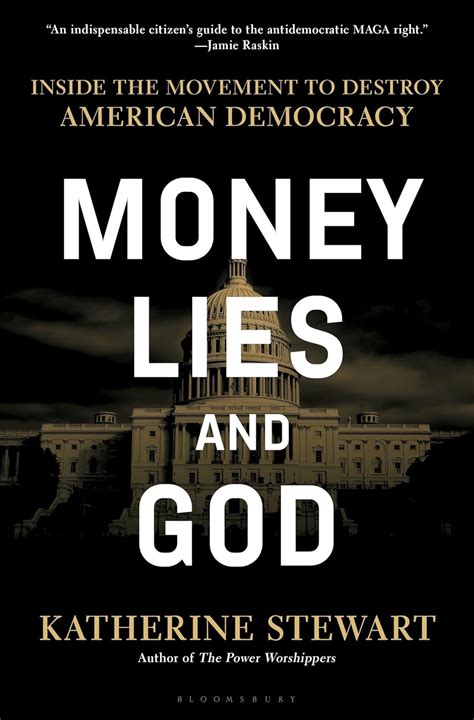The intricate dance between money, lies, and God is a complex and sensitive topic, woven into the fabric of human history, culture, and personal beliefs. At its core, this relationship touches upon fundamental aspects of human nature: the desire for financial security, the propensity for deception, and the quest for spiritual fulfillment. Each element influences the others, creating a dynamic that can either uplift or corrupt, depending on the context and intentions.
The Historical Perspective
Throughout history, money and religious institutions have had a symbiotic relationship. In many cultures, places of worship were not only spiritual centers but also hubs for financial transactions, charity, and community support. For instance, the ancient Jewish tradition of tithing, where a portion of one’s income is given to the church or community, highlights the integration of financial responsibility with religious duty. Similarly, in Islamic practice, zakat (charitable giving) is one of the five pillars, underscoring the importance of balancing wealth with spiritual obligations.
However, this relationship has also been marred by instances of abuse and corruption. The sale of indulgences by the Catholic Church in the Middle Ages, for example, led to widespread criticism and was a catalyst for the Protestant Reformation. This practice, where individuals could essentially buy their way out of punishment for sins, blurred the line between spiritual redemption and financial transaction, exemplifying how the pursuit of money can lead to lies and corrupt even the noblest of institutions.
The Psychological Aspect
Psychologically, the pursuit of money and the adherence to spiritual or religious beliefs can have profound effects on an individual’s well-being and behavior. Research has shown that while a certain level of financial security can lead to happiness, excessive wealth does not necessarily equate to greater happiness. This phenomenon, known as the Easterlin paradox, suggests that once basic needs are met, additional wealth does not lead to greater well-being but can instead foster materialism and decreased satisfaction with life.
Furthermore, the influence of religious beliefs on financial behavior can be significant. Some individuals may view their wealth as a blessing from God, leading to a sense of gratitude and responsibility to use their resources wisely and charitably. Others may see wealth as a test of faith, believing that their spiritual beliefs will protect them from the corrupting influence of money.
The Ethical Dilemma
The ethical considerations surrounding money, lies, and God are profound. One of the most critical issues is the potential for financial exploitation in the name of religion. Televangelists and religious leaderswho accumulate wealth by promising spiritual rewards in exchange for donations exemplify this issue. Such practices not only deceive followers but also undermine the integrity of religious institutions, blurring the line between genuine spiritual guidance and financial scam.
Moreover, the emphasis on material prosperity within some religious contexts can lead to a “prosperity gospel,” which teaches that wealth and good health are always the will of God for believers. This doctrine can be particularly damaging, as it implies that individuals who are not wealthy or healthy are not favored by God, leading to feelings of guilt, shame, and spiritual inadequacy.
Conclusion
The relationship between money, lies, and God is multifaceted and deeply personal, influenced by historical, psychological, and ethical factors. While money can be a tool for善doing and a means to achieve financial security, its pursuit can also lead to deception and corruption. Spiritual beliefs, on the other hand, offer a framework for ethical decision-making and can guide individuals towards a more balanced and meaningful approach to wealth.
Ultimately, navigating this complex terrain requires a nuanced understanding of the interplay between these elements and a commitment to ethical integrity. By recognizing the potential pitfalls and striving for transparency, honesty, and fairness in all financial dealings, individuals can foster a healthier relationship between money, their spiritual lives, and the broader community.
Frequently Asked Questions
How has the relationship between money and religious institutions evolved over time?
+The relationship has varied significantly, from serving as financial hubs to instances of corruption and abuse, such as the sale of indulgences. Today, many institutions focus on ethical investing and community support.
Can wealth lead to happiness, and how does this relate to spiritual fulfillment?
+Research indicates that once basic needs are met, additional wealth does not necessarily lead to greater happiness. Spiritual beliefs can influence how wealth is perceived and used, with some viewing it as a means to achieve spiritual goals or as a test of faith.
What are some ethical considerations regarding money and religion?
+Key ethical considerations include the potential for financial exploitation, the impact of the prosperity gospel, and the importance of transparency and fairness in financial dealings within religious contexts. These issues can significantly affect individuals’ spiritual and financial well-being.
How can individuals maintain ethical integrity in their financial dealings while adhering to their spiritual beliefs?
+By prioritizing transparency, honesty, and fairness, individuals can navigate the complex relationship between money and spirituality ethically. This includes being mindful of how wealth is accumulated and used, supporting ethical investing, and promoting community welfare through charitable giving.
What role does personal responsibility play in managing the relationship between money, lies, and God?
+Personal responsibility is crucial. Individuals must critically evaluate the teachings and practices of their religious institutions, ensure their financial decisions align with their spiritual values, and strive for ethical behavior in all aspects of life, including financial dealings.



